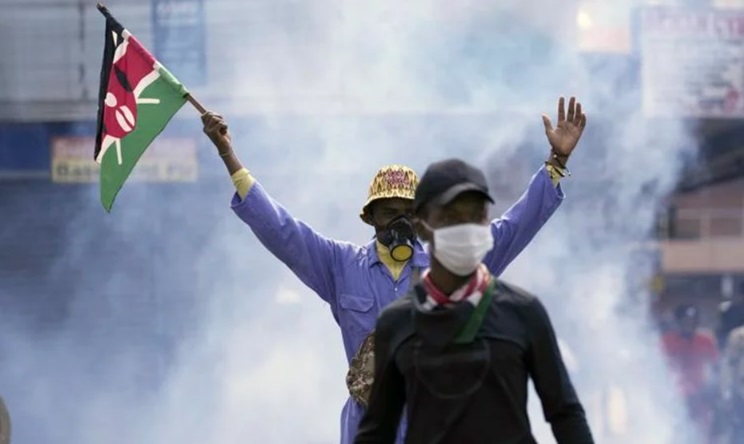In a turn of events on Wednesday, Kenyan President William Ruto scrapped planned tax hikes following intense pressure from nationwide protests. Demonstrators stormed parliament, and the country saw widespread demonstrations, with further action threatened this week. This concession marks a significant victory for a burgeoning youth-led protest movement, which rapidly evolved from online discontent over tax increases into mass rallies demanding comprehensive political change. Ruto’s presidency, now two years old, faces its gravest crisis yet.
Despite Ruto’s retreat, some protesters vowed on social media to proceed with a scheduled rally on Thursday, maintaining calls for his resignation. The president’s announcement came after violent clashes between police and protesters, resulting in at least 23 deaths and numerous injuries. “Listening keenly to the people of Kenya who have said loudly that they want nothing to do with this finance bill 2024, I concede. And therefore, I will not sign the 2024 finance bill, and it shall subsequently be withdrawn,” Ruto stated in a televised address, with lawmakers behind him showing mixed reactions.
Vice President Rigathi Gachagua implored the youth to halt the protests to prevent further bloodshed and property damage, blaming intelligence agencies for the chaos.
Protesters, however, remained resolute, with prominent social justice activist Boniface Mwangi calling for a “1-million-people march.” On social media platform X, Mwangi accused the government of deceit, stating, “The arrogance is gone, but the lies are still there. Yesterday they unleashed goons and police to kill peaceful protesters. That will not stop us.”
Ruto promised to initiate dialogue with the youth and implement austerity measures, starting with budget cuts to the presidency, to balance the country’s finances. He acknowledged the tragic loss of life during the protests as “very unfortunate.” Kenyan police have yet to comment on the violence.
The president’s concession may temporarily quell unrest, but it leaves him navigating the competing demands of his citizens and international lenders like the IMF, which has urged Kenya to reduce deficits to secure further financing. Despite the political turmoil, Kenya’s sovereign dollar bonds remained largely stable.
The protest movement, sparked by proposed taxes on essential items like bread and diapers, grew from online outrage into a formidable force, with demonstrations recorded in 35 of Kenya’s 47 counties, including Ruto’s hometown, Eldoret. The Kenya Medical Association reported 23 fatalities and 30 individuals being treated for gunshot wounds, with many more injured.
Social media posts have called for occupations of the State House and local offices of the World Bank and IMF, although the origins of these calls remain unclear. Nairobi streets, usually bustling, were eerily quiet under heavy police patrols on Wednesday.
The youthful demonstrators, eschewing traditional political leadership, have driven this movement, urging opposition figures to remain on the sidelines. Nonetheless, some opposition members celebrated Ruto’s backtrack. “Self-preservation has kicked in,” opposition senator Edwin Sifuna remarked on X.
As Kenya navigates this political upheaval, the future remains uncertain. The youth-led movement’s influence and the government’s response will shape the country’s trajectory in the coming weeks and months.
(Source: BBC | CBS | NBC)









